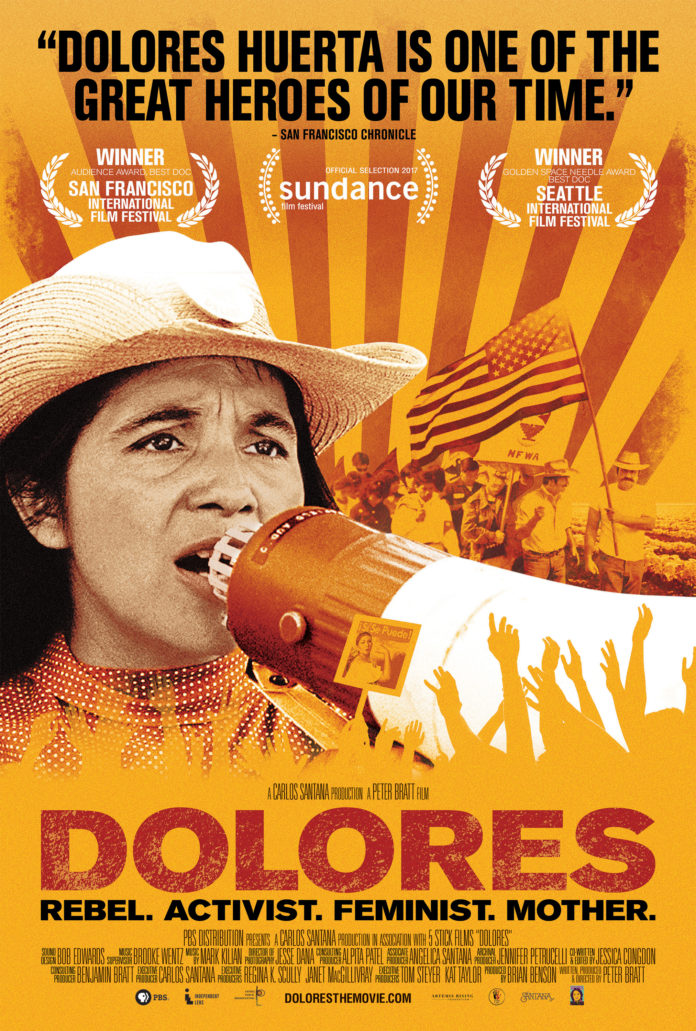HANNAH SOLTIS; Copy Editor; soltishe@plu.edu
On Thursday, April 12, senior Rhiannon Berg, along with the Pacific Lutheran University Hispanic Studies, Communication and Women’s and Gender Studies departments, presented the documentary “Dolores,” which explores the life and achievements of social activist Dolores Huerta. After the screening, there was also a panel discussion that included three members of the local activist community: co-founder of Tacoma Migrant Justice Star Murray, Assistant Professor of Anthropology Jordan Levy and PLU first-year student Carlos Alvarez.
For Berg, this project was the culmination of a longstanding interest in this activism. In a Facebook post about the screening, she said, “I first heard about Dolores Huerta as a first grader in Southern Oregon, an area with a large population of migrant workers. I was waiting for my mom to finish teaching an evening English class at a local organization that advocates for farmworkers rights and I saw a poster with Huerta and César Chávez on it. The powerful image stuck with me and helped inspire me to study her life and the lives of others fighting for change while at Pacific Lutheran University.”
The documentary shows the dedication and effort Huerta poured into her fight for rights for immigrant farm workers in the mid-twentieth century. She worked alongside César Chávez, the better known leader of the United Farm Workers Union, to advocate for racial and labor justice in farms across California and the rest of the country. In particular, the documentary emphasized the ways in which she was disregarded and discredited because she was a woman, to the point that she was passed over to lead the group despite her qualifications because the people in power would not listen to a woman.
For the second half of the event, the panel discussion, Berg said she, “reached out to PLU faculty, student activists and community members who are involved in local activist work related to immigration and migrant workers.” The panel participants addressed several questions, including how members of the PLU community can be more involved in advocating for immigrant rights. With the Northwest Detention Center, a privately owned prison for immigration detainees, less than 10 miles away from campus, Murray pointed out that this is not some far-off problem, but one right next door.
The group she founded with Luis Garciaand Tacoma Migrant Justice, focuses on gaining official rights for immigrants both inside and outside of the detention center. Ultimately, the advice for students was to do a little searching to find ways like writing letters to local government representatives or volunteering with groups like Tacoma Migrant Justice to help the people in this area.
The event was a part of Berg’s Capstone project for School of Arts and Communication. “I was searching for something to focus my capstone project on that could combine all of my disciplines—Hispanic Studies, Women’s and Gender Studies and Communication,” she said. “After the event, many people told me they didn’t know about Dolores or only vaguely knew about what she has accomplished, so it was amazing to help bring the film to campus and hopefully bring attention to her work and the work of other female activists whose voices haven’t been recognized throughout history.”
The documentary “Dolores” is available for check-out from PLU’s Mortvedt Library, so even if you missed the event, you can still see the story of a woman who has dedicated her life to justice.

















